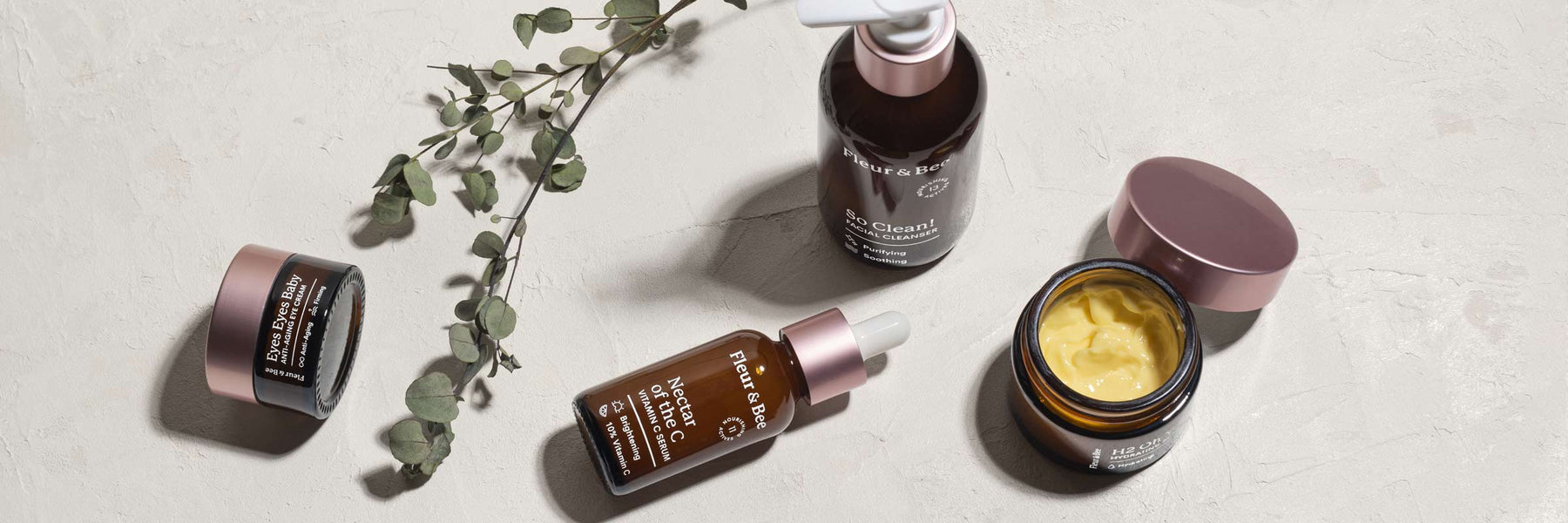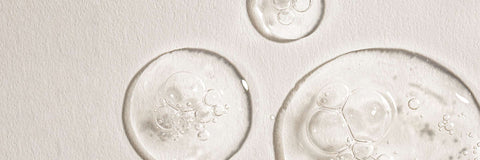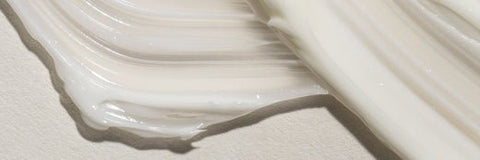Wouldn’t it be nice if you could simply splash your face with water to hydrate it, and call it a day? Unfortunately, our skin doesn’t quite work that way. In fact, water on the surface of your skin can actually cause your skin to dry out - because as it evaporates, it takes hydrating oils with it. Rude!
The best way to keep the surface of your skin hydrated is with a hydrating skin care routine. Remember: dehydrated skin is lacking water, and dry skin is lacking oil. You can have both dry and dehydrated skin, or oily/combination and dehydrated skin.
Let’s talk about how to best restore the proper amount of water to your skin. We’ll go over how to hydrate each skin type, and other tips for skin hydration.
IN A NUTSHELL
Main Takeaways: Regardless of skin type, everyone needs to hydrate their skin. The best way to do this is with a hydrating routine designed for your skin type.
Good to Know: Hyaluronic Acid is an ingredient that is beneficial for all skin types. It’s super hydrating and great for all skin types.
Recommended Products: Rose and Shine Rose Water Toner, Just Dew It Hydrating Serum, Eyes Eyes Baby Anti-Aging Eye Cream and H2 Oh Yeah Hydrating Moisturizer.
How to Hydrate Your Skin Type
Each skin type is different and needs different things from skin care products. However, one thing is true for all skin types: you need to hydrate your skin.
Hydrating your skin means that you are restoring water to your skin. You may think that you can skip the moisturizer if you have oily skin, but that’s just not true. Oily skin can still lack the proper amount of water and be dehydrated, even if your skin is not dry.
Here’s a basic skin care routine we think everyone should follow twice a day to keep your skin well hydrated:
- Gentle Cleanser
- Hydrating Toner
- Hydrating Serum
- Eye Cream
- Hydrating Moisturizer
- Sunscreen (in the a.m.)
Keep reading for more tips for each skin type, including what to look for in skincare products to keep your skin hydrated and healthy.
How to Hydrate Dry Skin
One of the first steps in keeping dry skin hydrated has to do with the type of cleanser you use. Many cleansers use harsh ingredients like sulfates to help the cleanser lather; and while they do cleanse your skin, they also completely strip it of its natural oils, leaving skin tight and dry. Look for a gentle cleanser that includes hydrating and moisturizing ingredients like aloe vera, coconut oil, or glycerin.
Another product those with dry skin should start using is a hydrating serum containing hyaluronic acid. Hyaluronic acid is naturally found in your skin and is the super hero of hydrating ingredients, as it can hold up to a thousand times its weight in water. It’s one of the best natural ingredients for hydrating skin.
Because dry skin is lacking both oil and water, be sure to use a proper moisturizer that targets both concerns. Moisturizers help to lock in all the nourishing ingredients in your serum and face cream, keeping in the moisture and hydration by restoring your skin’s protective barrier. Look for moisturizers with clean ingredients like squalane, hyaluronic acid, aloe, sea buckthorn oil, and glycerin.
Overall, if you have dry skin, you want to avoid drying ingredients like artificial fragrance and salicylic acid.
How to Hydrate Oily Skin
Even if you have oily skin, it’s important to keep it hydrated, as it can still lack the proper amount of water, making it dehydrated. Focus on ingredients and products that can help to balance your skin’s natural oils while restoring water to your skin.
One product to add to your lineup – if you don’t have one already – is a hydrating toner. A hydrating toner will help to control excess oil and restore balance to your skin. A rosewater toner is a great option; or look for a toner containing green tea or tea tree oil. Avoid toners with high concentrations of alcohol, as it can dry out your skin and trigger increased oil production.
A hydrating serum is great for those with oily skin, as it focuses on restoring hydration to your skin and is generally lightweight , so it won’t clog your pores or make your skin feel too greasy.
The proper moisturizer will help to balance your skin’s oil. In general, it’s best to stay away from heavier creams, moisturizers, and night creams; look for water-based moisturizers that have oil balancing ingredients like squalane, jojoba, aloe, or hyaluronic acid.

How to Hydrate Combination Skin
If you have combination skin, it’s important to look for products that contain ingredients that will hydrate your skin as well as balance your skin’s natural oils. This way, the product will work for your entire face. A hydrating serum and moisturizer with hyaluronic acid will help you keep your skin balanced and hydrated.
Squalane is one of the best ingredients for this. It mimics your skin’s own sebum, so it moisturizes while limiting excess oil. Finally, look for products with green tea, which helps to balance oils and is full of antioxidants to nourish your skin.
How to Hydrate Mature Skin
As you age, your skin loses moisture, so it’s important to make sure that your skin care routine is super-hydrating. Besides hyaluronic acid, look for products that also contain vitamin E to restore your skin. Try layering both a hydrating serum and a rich hydrating moisturizer both day and night. As you sleep, your skin repairs itself, so it’s a great time to give it some extra TLC with your products.
Retinols are a great ingredient to look for in a night cream or a night serum. Retinols help to minimize the look of fine lines and wrinkles and dark spots and even skin tone. However, retinols can make your skin sensitive to the sun, so it’s best to use them at night.
Another must have product in your anti aging routine is a hydrating eye cream. First things first – an eye cream isn’t just for mature skin; but if you do have mature skin, it should be an essential part of your routine. Look out for great anti-aging ingredients such as squalane, hyaluronic acid, caffeine and gotu kola- all known for working to reduce the appearance of fine lines around the eyes. You can find an eye cream that uses more than just one of these effective ingredients to bring moisture to your eye area.
Skin Hydration is Key
It’s soooo important to keep your skin hydrated, no matter what your skin type. Finding the right combination of ingredients and products is key to keeping your skin healthy, happy, and hydrated.
Ready to incorporate hydrating skincare products into your routine?
Restore hydration and balance your skin after cleansing with Rose and Shine Rose Water Toner rosewater toner. It includes glycerine to help draw water into your skin.
Don’t forget to treat the delicate skin around your eyes with Eyes Eyes Baby eye cream, complete with hydrating ingredients squalane and hyaluronic acid.
We’ve formulated an award-winning hydrating serum with Just Dew It. It includes squalane and prickly pear seed oil and hyaluronic acid for long-lasting hydration.
Seal it all in with hydrating moisturizer hydrating moisturizer. This silky face cream includes shea butter and sea buckthorn oil to restore hydration and nourish the skin.
Other Tips for Skin Hydration
Obviously, a hydrating skincare routine is essential for keeping your skin moisturized and healthy, but there are also lifestyle factors that can affect your skin. Here are some additional lifestyle tips for combating dehydrated skin.
Avoid hot showers - Hot water on your face and body can dry out your skin. Try washing your face and showering with lukewarm water instead.
Wear sunscreen - Vitamin D in the form of sunshine can feel glorious, but sun exposure can zap moisture from your skin. Always wear sunscreen whenever you are outside. UV rays will both dry out and age your skin, causing long term damage to your skin.
Drink plenty of water - Drinking water will keep you and your skin hydrated and healthy. You should drink at least eight 8 oz glasses of water every day.

Eat fresh produce - Many fruits and veggies contain a lot of water, vitamins, and antioxidants, which helps with skin hydration. Add watermelon, celery, cantaloupe, lettuce, oranges, raspberries, green peppers, spinach, and avocado to your daily diet. They’re all packed with H2O and antioxidants. Caffeine, alcohol and food high in salt can dehydrate your skin, so they are best avoided or limited.
Change up your routine in winter - The low humidity during the winter months can wreak havoc on your skin, leaving it dull and dry. You may not have issues with dry skin in the spring and summer, but pay attention to changes in your skin in winter. You may need to add some more moisturizing and hydrating products to your lineup.
Try a humidifier - A humidifier puts water back in the air, which can help keep your skin from drying out.
Frequently Asked Questions About Hydrating Skin
Is there a difference between Dry vs. Dehydrated Skin?
Dry skin means that your skin isn’t producing enough oil, or sebum, to stay moisturized; dry skin can be your skin type, or caused by your environment. On the other hand, dehydrated skin means your skin is lacking water and is typically just a temporary condition. Lack of water in your skin is usually caused by environmental factors or lifestyle habits like dry/low humidity weather or diet.
Do I need to moisturize if I have oily skin?
Yes! All skin types need to moisturize. Your skin may be overcompensating by producing excess oil, and it needs help to restore balance. Using a moisturizer with oil-balancing ingredients like squalane and jojoba oil.
Will drinking water help my dry skin?
Absolutely! Drinking water will help to rehydrate your body and your skin. It’s recommended that adults drink eight 8 oz glasses of water each day.









